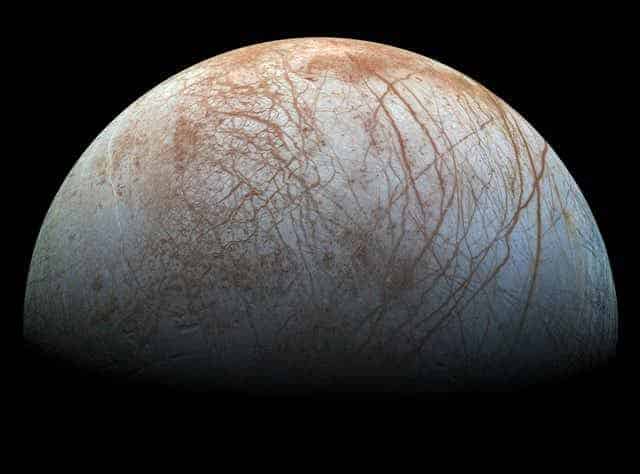Great news! In just ten years we will see two space travels explore one of the most habitable places in the solar system beyond Earth (if we exclude Saturday evening).
Life on Europe: it would be an extraordinary discovery. The exciting announcement to NASA that gave the green light to Europa Clipper makes everyone dream. The first orbiting spacecraft will reach Jupiter's moon in the early 30s. Astronomy says it clearly: we won't find life on Jupiter, that planet is also quite thorny to visit, but we can hope very well on its satellite.

The green light for the mission to Europa coincides with that of ESA, which 4 months ago started the development of JUICE, which stands for Jupiter Icy Moons Explorer. JUICE will precede the Clipper a little, will arrive in Europe in just over 9 years.
At the dawn of the space age everyone imagined that all life depended on the energy of the sun. The icy moons of the outer planets were considered the last place to look. The discovery of entire ecosystems in the depths of the Earth's ocean depths has completely changed the perception of the thing.
Curiously, we now know that life can also arise "without the sun", and indeed ice may have protected and accompanied its development.
Europe, the cradle of life?
Europa can host in its liquid body an ocean under ice caps, life of all kinds, from the microbial one onwards.
This is because it contains 3 essential prerequisites to life: an energy source, a liquid solvent where interacting chemicals dissolve, and biochemical molecules.
Europa's energy comes from the combination of its orbit around Jupiter and the gravitational interaction between the two celestial bodies and two other moons. This combination of forces allows gravitational changes on Europa with each orbit: a sort of "vibration" that prevents the water from freezing completely.
The presence of biochemical molecules on Europa, if not coming from the nucleus of the star, is guaranteed by confirmed impacts with comets in the (relatively) recent past.

An “icebreaker” radar
Both Europa Clipper and JUICE will carry with them a special radar to “pierce” Europa's icy surface. Not recent but effective technologies, if you consider that both in Antarctica and on Mars they have done their duty very well in scanning the subsoil.
The search for life on Europa seems the ideal gym for this technology, because the colder the ice, the clearer the response to radar. The average temperature in Europe is -170 ° C. Current estimates say that between 15 and 25km of depth there is liquid water.
The Hubble Space Telescope has indeed located many cases where liquid water is even closer. In the southern hemisphere it even comes out to the surface in the form of “frozen feathers” crystallizing instantly, like lava from a volcano.
JUICE and Europa Clipper, by "studying" ice and gravitational anomalies, aim to understand which is the best or most promising place to look. After them will come probes that will really start drilling into the ice.
The challenges to face
The next generation of probes will encounter many more problems than JUICE and Europa Clipper. To collect any samples of life, a drill will not be enough: for kilometers of ice as hard as granite, a laser will be needed, or perhaps nuclear reactors to be allowed to melt inside to make way. Maybe a small submarine to lower into the "hole" made.
Even in areas with thin ice and water close to the surface, it will not be easy to bring "heavy" vehicles up there. Europa's proximity to Jupiter creates a strong gravitational field that requires a lot of speed and fuel to avoid being captured by it. JUICE will also find complications in the exploration of Ganymede, another moon of Jupiter. To visit it you will need 3000kg of fuel.
The presence of strong radiation from Jupiter it constitutes another danger for the spacecraft: for this reason the Clipper will make very wide orbits, in order to resist as long as possible.
We do not forget the absence of a dense atmosphere on Europa: another problem that will force maneuvers without a parachute or brakes of some kind. Everything can be achieved only with rockets, increasing the use of fuel.
Did you think it was over? There are also the problems that we will bring: Europe is currently a completely unspoiled environment. Tasks such as those we have set ourselves could contaminate it with rocket fuels, or with terrestrial microbes that we will have brought by mistake (they always tend to pocketing clandestine passengers).


